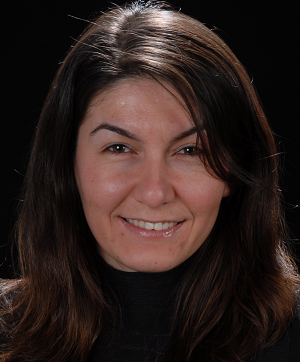Editorial Board
Editor-in-Chief
Dr. Eugene E. Toring
Said Nadeem
Editors

Vedat Öner
Dr. Jimmy B. Maming
Dr. Kimberly N. Toring
Dr. Nonita P. Legaspi
Dr. Glenn B. Dongallo
Dr. Rene Aligonero

Hilal Şahin Nadeem
Advisory Committee
Associate Editors
Dr. Mariae Khrisna Arreza
Technical Editors
Dr. Jhoselle Tus
Country Coordinators
Subject Specialists
Scientific Committee Member
Prof. Yusuf Iskandar
Dr. Jordan Cabaguing
Youth Editor
Legacy Editorial Board
EDITORIAL RESPONSIBILITIES:
- Quality Assurance. Ensuring the publication of high-quality, original, and impactful research by overseeing a stringent peer-review process. Editors are committed to upholding academic excellence and integrity in all published content.
- Ethical Oversight. Upholding ethical standards by preventing plagiarism, ensuring proper citation practices, and addressing any ethical concerns or conflicts of interest. Editors maintain strict adherence to publication ethics guidelines.
- Editorial Board Management. Curating and managing a diverse and esteemed editorial board comprising experts from various domains within tourism and hospitality management. Collaborating with board members to guide the journal's direction and maintain scholarly rigor.
- Content Curation and Development. Encouraging diverse submissions and steering the journal's content to cover emerging topics, innovative practices, and theoretical advancements in tourism and hospitality management. Editors identify and prioritize impactful research relevant to the field.
- Communication and Engagement. Facilitating effective communication with authors, reviewers, and readers by providing clear guidelines, timely updates on submissions, and engaging editorials or commentary pieces to stimulate scholarly dialogue.
- Continuous Improvement. Regularly evaluating journal policies, procedures, and quality metrics to adapt to evolving scholarly needs. Editors seek feedback from stakeholders to enhance the journal's impact and relevance within the field.
- Strategic Planning. Developing and executing long-term strategies for the journal's growth, visibility, and influence within the academic community. This includes exploring collaborations, expanding indexing, and fostering international partnerships.
- Conflict Resolution. Addressing conflicts or disputes arising during the publication process impartially and professionally. Editors mediate disagreements between authors, reviewers, or board members, ensuring fair and ethical resolutions.
- Compliance and Standards. Ensuring compliance with publishing industry standards, including formatting guidelines, indexing requirements, and copyright regulations. Editors keep abreast of changes in scholarly publishing practices.
- Promotion and Dissemination. Actively promoting published content through diverse channels, such as social media, conferences, and partnerships, to maximize visibility and dissemination of scholarly work in tourism and hospitality management.
- By adhering to these editorial responsibilities, the Journal of Advanced Studies in Tourism and Hospitality Management aims to maintain its reputation as a reputable platform for scholarly exchange, innovation, and advancement within the domains of tourism and hospitality management.
PEER REVIEW/RESPONSIBILITY FOR THE REVIEWERS
Peer review is the critical assessment of manuscripts submitted to JASAAM by experts in related fields. Unbiased, independent and critical approaches to academic assessment are an intrinsic part of all scholarly work. Peer review can therefore be viewed as an important extension of the scientific process. Peer review means bringing judgment based on experience and knowledge to the evaluation process—from setting the standards to conducting the evaluation, to making final decisions. JASAAM acknowledges the contribution of its peer reviewers. Each paper will be sent for evaluation by at least two reviewers.
All Reviewing Judgments Should Be Objective
Reviews should be conducted objectively. Personal criticism of the author(s) is unacceptable. Referees should express their views clearly with appropriate supporting arguments. Reviewers are expected to respond promptly to requests to review and to submit reviews within the time agreed. Reviewers’ comments should be constructive, honest, and polite.
Reviewed Articles Should Be Treated Confidentially
Reviewers should regard a submitted manuscript as a confidential document and not meant to be public, and so should not use, share or disclose unpublished information in a manuscript. Reviewers must not publicly discuss an authors’ work and must not appropriate authors’ ideas before the manuscript is published. Reviewers must not retain the manuscript for their personal use and should destroy copies of manuscripts after submitting their reviews.
Reviewers Should Have No Conflict of Interest with Respect to Reviewed Articles
Privileged information or ideas obtained through peer review must be kept confidential and not used for personal advantage. Reviewers should not consider evaluating manuscripts in which they have conflicts of interest resulting from competitive, collaborative, or other relationships or connections with any of the authors, universities, or institutions connected to the submission. Reviewers must disclose to editors any conflicts of interest that could bias their opinions of the manuscript and should recuse themselves from reviewing specific manuscripts if the potential for bias exists. Reviewers must not use knowledge of the work they’re reviewing before its publication to further their own interests. Reviewers must not retain the manuscript for their personal use and should destroy copies of manuscripts after submitting their reviews.
Reviewers Should Assess the Manuscript in a Timely Manner
Peer reviewers must fulfill their responsibility by rigorously assessing a given research manuscript within the time limits specified by JASAAM. If reviewers are unable to review the paper at a specified time, they should inform the editorial board immediately by e-mail to the editor.
Reviewers Should Point Out Relevant Published Work Which is Not Yet Cited
Reviewers should point out relevant published work that has not been cited by the authors. Any statement that an observation, derivation, or argument had been previously reported should be accompanied by the relevant citation. A reviewer should also call to the editor’s attention any substantial similarity between the manuscript under consideration and any published paper.
PUBLISHER DETAILS
SciMatic - Scientific Writings and Software
Adnan Menderes Technocity, Aydin, Türkiye
Address to visit: Aydın Adnan Menderes University Campus, Adnan Menderes Technocity
Street 152, Office 29b Efeler-AYDIN Türkiye





